BFI News
Planting Seeds for a Just and Equitable Food Systems Workforce
Our commitment to Fair and Healthy Jobs includes connecting students to the diversity of jobs across food systems sectors.
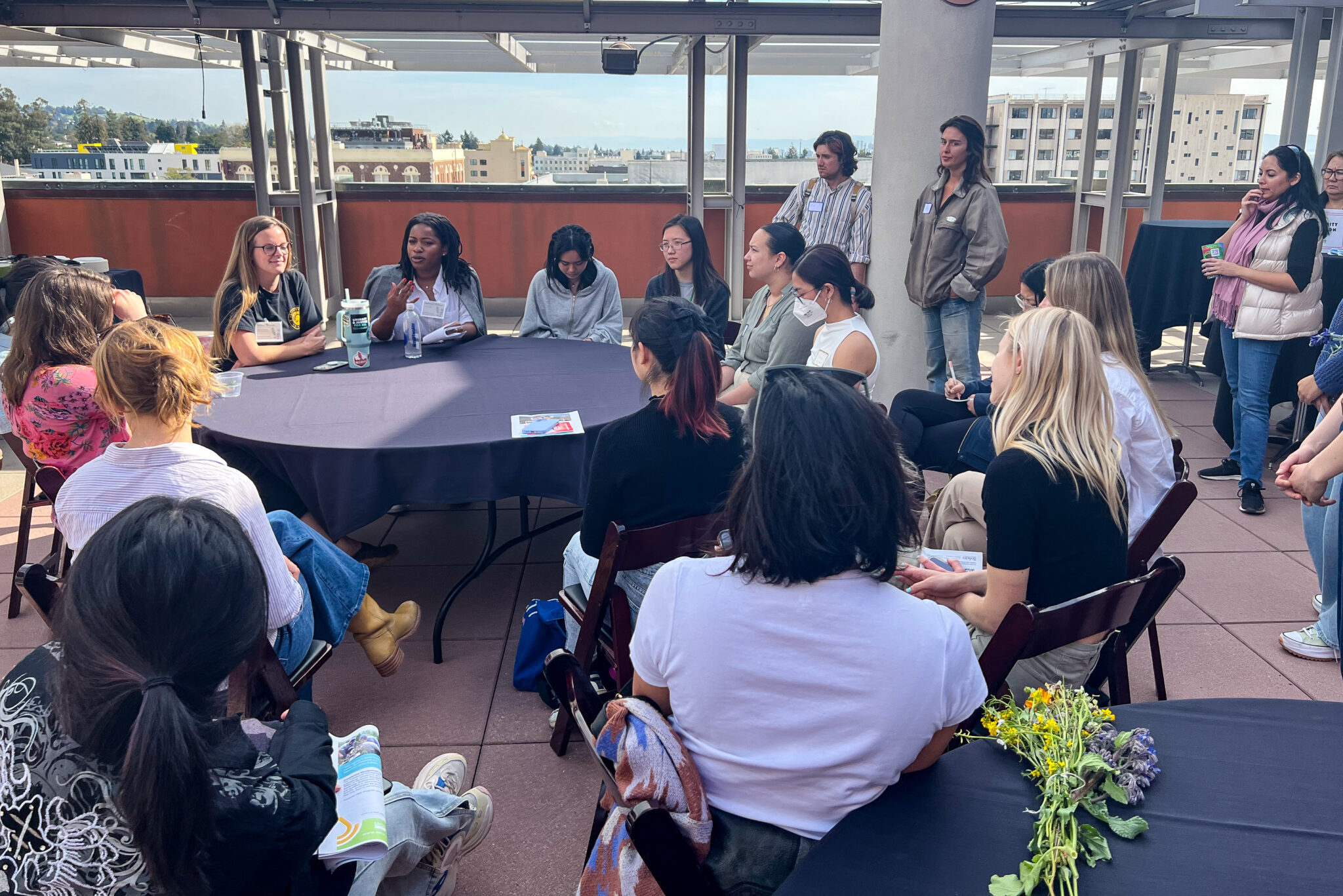
This spring has sprung for us at Berkeley Food Institute. We’ve been lucky enough to receive $325,000 from the USDA with help from California Certified Organic Farmers (CCOF) to focus on Organic Workforce development over the next five years through the Transition to Organic Partnership Program. We’ve also organized within our Advisory Council a Fair and Healthy Jobs committee to leverage the expertise of our off-campus partners to develop our career readiness programming. With the help of our UC Global Food Initiative Food Systems Career Fellow, Isabel Martin, Educational Programs Director Vicky Chang, our Fair and Healthy Jobs committee, and other stellar departments across campus, we were able to host two successful career events this past Spring semester: our resume and mock interview night and our career fair.
At our Sharpen Your Professional Narrative Night, students met one-on-one with volunteers to polish their resume and interview skills. Our amazing volunteer reviewers represented BFI, the Cal Veteran Services Center, the Center for Responsible Business, Food@Haas, and the Food Institute Graduate Council. Not only did students boost their resumes and interview skills, they also received career guidance and mentorship from the reviewers.

Educational Programs Director Vicky Chang gives opening remarks at resume review night on March 8, 2023. Photo by Nathalie A. Muñoz
This evening allowed our students to come all the more prepared for Planting Seeds of Connection & Transformation, our Food Systems Career Fair in March, where we invited professionals from the field to share their food systems career paths with students. The career fair featured 13 professionals across three sectors: technical assistance, community advocacy and education, and value based supply chains. Within each sector we invited professionals from companies and organizations that support our mission of fair and healthy jobs and organic workforce development.
The fair was structured as a round robin with students attending multiple panels to learn more about each sector. This allowed students to hear from each employer, and also explore sectors they may have not considered previously. Many students shared their motivation for attending the event as simply wanting to understand what careers are available in food systems beyond food service or farming. This has become an important piece of our Fair and Healthy Jobs focus: to highlight the diversity of food and agriculture career paths and show students how they can play essential roles in various sectors of our food systems.
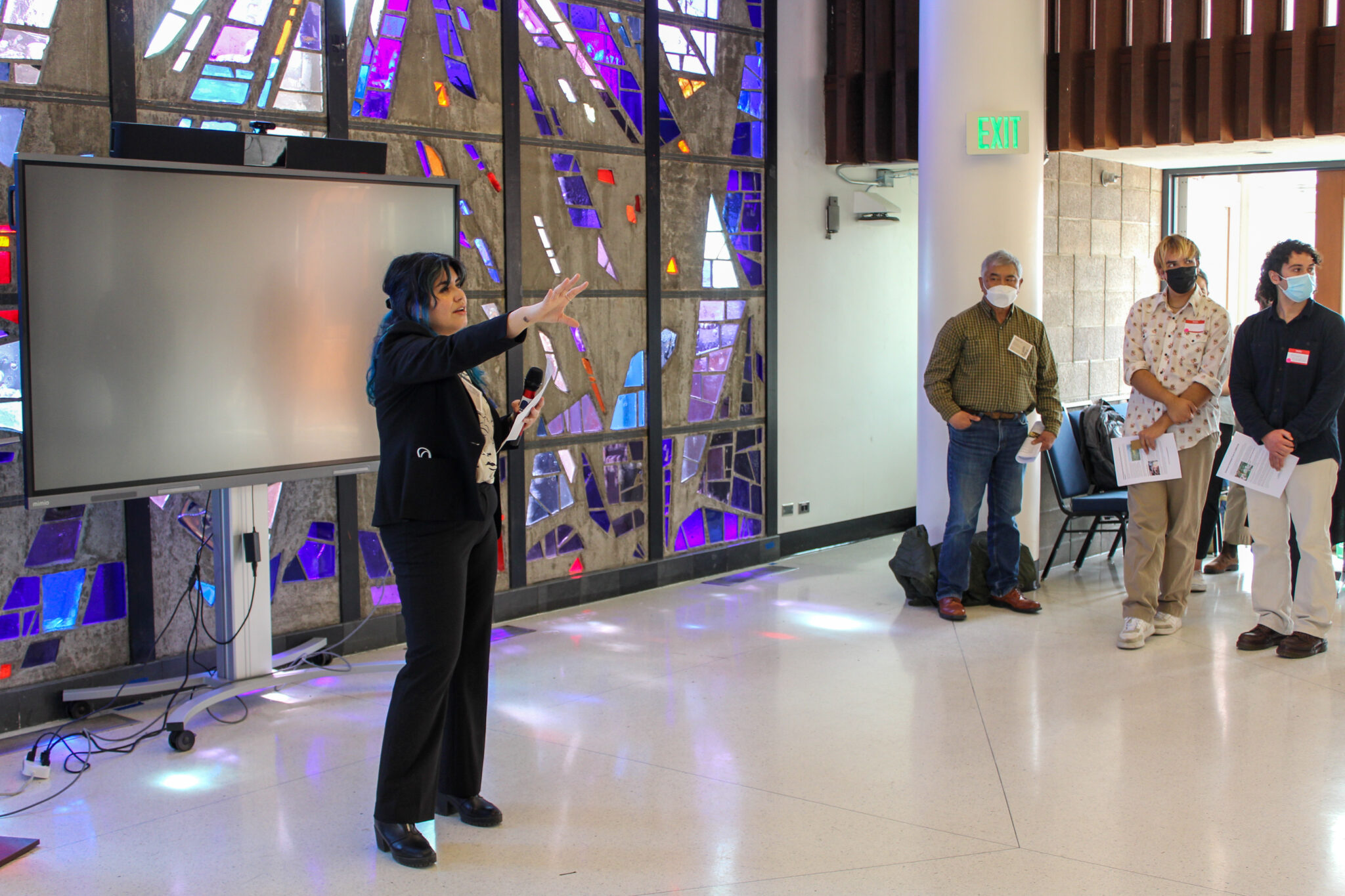
Nathalie A. Muñoz, BFI Community Engagement Program Manager, gives opening remarks at the Food Systems Career Fair on March 17, 2023. Photos by Austin Price
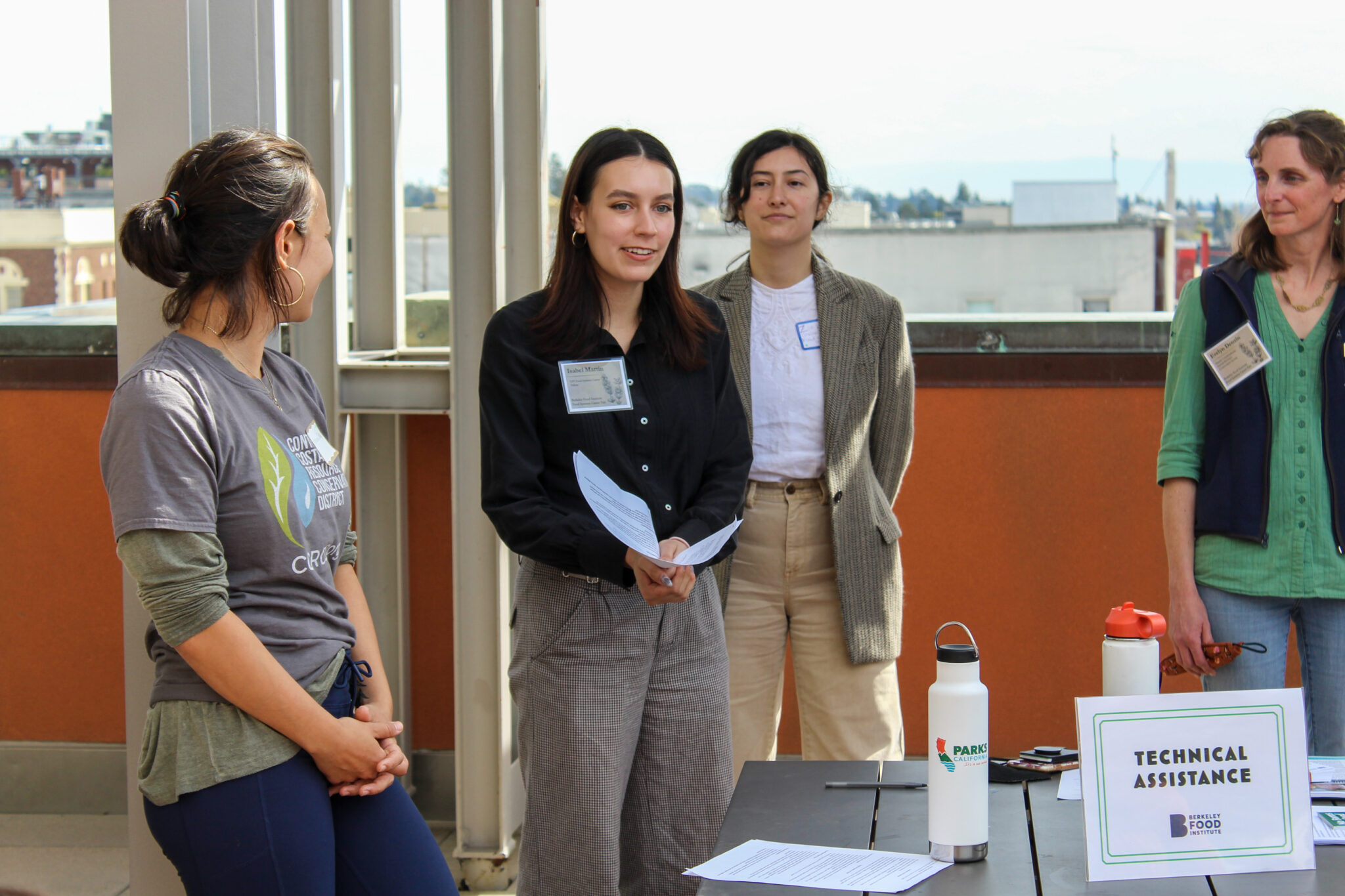
Isabel Martin, Global Food Initiative Food Systems Careers Fellow at BFI, moderates a panel of technical assistance providers.
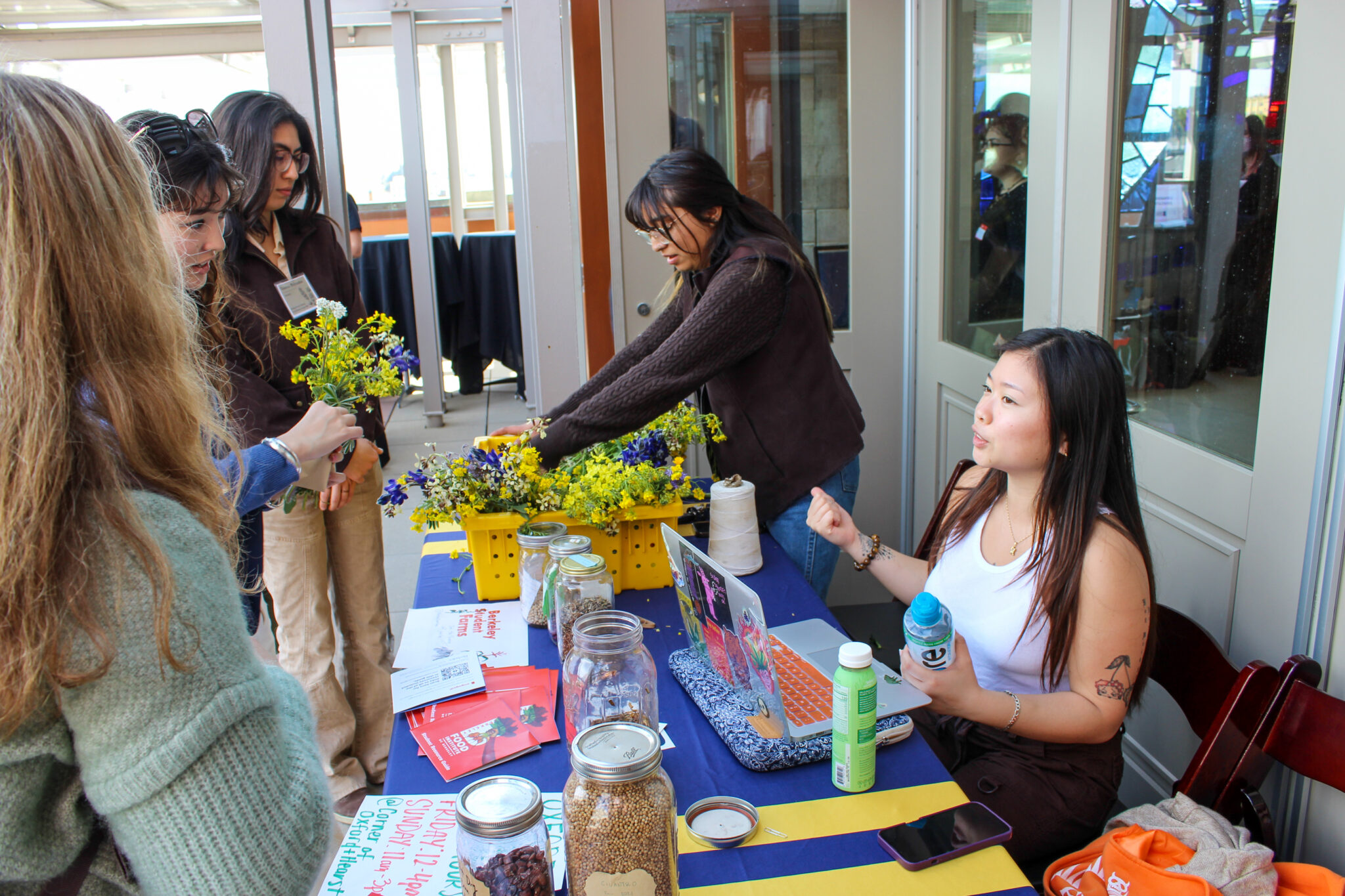
Ashley Yue, BFI’s Urban Ag and Finance Assistant, talks to students about Berkeley Student Farms.
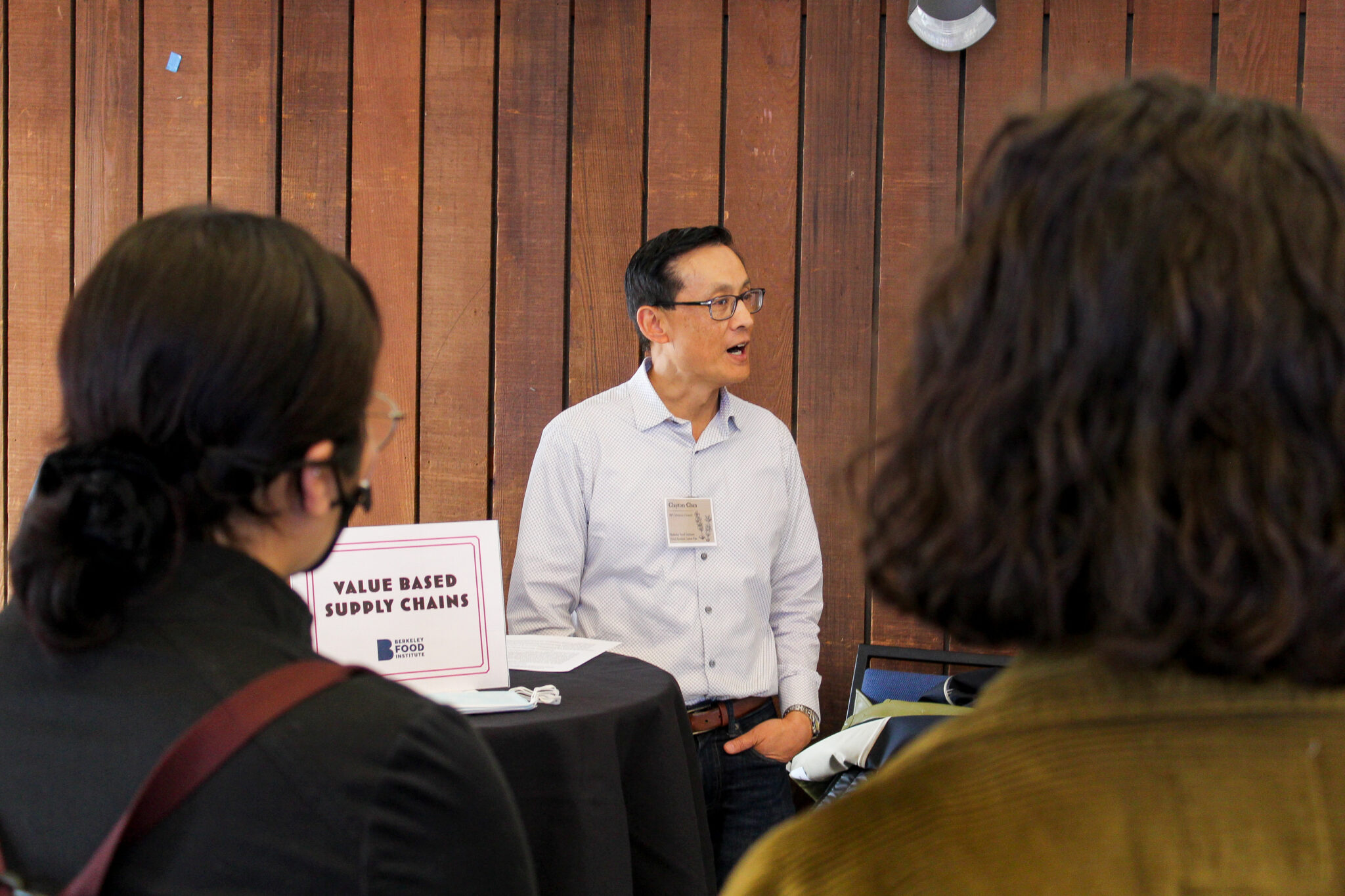
Clayton Chan, Chief Operating Officer of San Francisco Soup Company and a BFI Advisory Council member, talks to students about a career in value based supply chain.
Our investment in workforce development comes at a time when inequities in our food systems workforce have become even greater. Especially since the pandemic hit, we’ve seen loosened worker protections, layoffs, pay inequities, and mass deportations. Mounting climate crises also continue to impact our food supply, food prices, disaster preparedness, worker safety, and soil health, to name a few. Now more than ever, we need a competent workforce that can tackle the climate crisis, scale up sustainable agriculture, expand access to affordable and nutritious food, and continue to fight for just and equitable food policies.
That said, our career programming is nothing new. We’ve been hosting career panels and publishing a weekly food systems opportunity newsletter since 2017. Our previous career panels can still be seen on our YouTube channel. We recognize that the diversity and abundance of jobs within the food system is vast and expanding every single day, which can make navigating career pathways for students at a research university like UC Berkeley, no matter how passionate they are, overwhelming and confusing.
We have a charge to promote fair and healthy jobs throughout the food system, and we have a service to students at UC Berkeley and beyond to prepare them to enter into the workforce as critical thinkers, conscious consumers, and with the capacity to be responsible land stewards. This is why we organize annual career events, publish our weekly newsletter, promote the Food Systems Minor and Graduate Certificate in Food Systems, invite students on free field trips to local farms and food policy conferences, provide funding for student run food and ag events, and invest in Berkeley Student Farms — all as vessels to expand student learning outcomes and leadership skills.
Important pieces of our Fair and Healthy Jobs focus are to highlight the diversity of food and agriculture career paths and to show students how they can play essential roles in various sectors of our food systems.
We also have a charge to uphold racial equity within the food system, which means making a concerted effort to reach out to all corners of the university to ensure students who identify with any number of marginalized identities know they are in fact a part of our food system and have a role to play. The reality is that we’re not seeing enough people of color in positions of power to meet the needs of our precarious food system as it exists. Students need to see themselves as changemakers.
As we continue our Fair and Healthy Jobs programming into next year, here are a few things the BFI team is looking forward to next academic year:
- Connecting students to more paid and/or free experiential learning opportunities to apply what they’re learning in the classroom,
- Opening the doors for more students from other universities and community colleges to attend our next fair,
- Hosting more resume and mock interview workshops,
- Organizing more virtual career panels to do a deeper dive into food systems careers within value based supply chains and technical assistance,
- Collaborating with more cross campus departments to bolster workforce development, specifically within value based supply chains and technical assistance,
- And creating opportunities for students to connect with their peers to foster a greater sense of community among food systems students and alumni.
Our careers program is made possible through the Transition to Organic Partnership Program at the US Department of Agriculture. Through our partners California Certified Organic Farmers (CCOF), BFI was granted funds to focus on Workforce Development programming over the next five years. Our Workforce Development programming is particularly focused on highlighting jobs in values-based supply chains and technical assistance for small businesses and farmers in the organic sector.